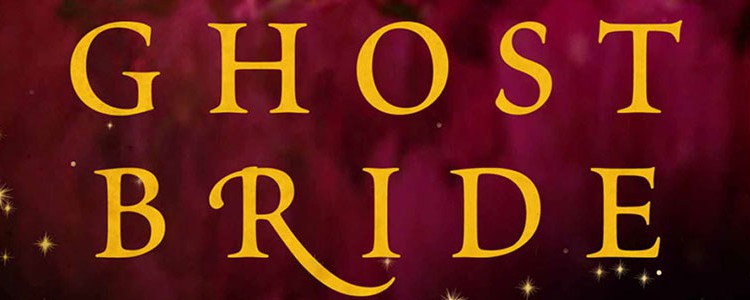Literati: “Catch them young”
From this month I begin a new column in the Hindu Literary Review called “Literati”. It will be about the world of books, publishing and writers from around the world. Here is the url to the first column. http://www.thehindu.com/books/literary-review/catch-them-young/article5969576.ece It was published online on 3 May 2014 and will be in the print edition on 4 May 2014. I am c&p the text below.
 A friend called this morning expressing her delight that her 11-year-old son had finished the pile of books I had lent him. Now he was back to reading Calvin and Hobbes. A father worried about his tennis- and cricket-mad 10-year-old son says the kid only wants to buy sports almanacs.
A friend called this morning expressing her delight that her 11-year-old son had finished the pile of books I had lent him. Now he was back to reading Calvin and Hobbes. A father worried about his tennis- and cricket-mad 10-year-old son says the kid only wants to buy sports almanacs.
The parents’ bewilderment is incomprehensible given the explosion of children and young adult literature. The focus is so intense that it has generated a lively intense debate along gendered lines. Should books meant for girls have pink covers? Dame Jacqueline Wilson says it is ‘pigeonholing’ and it is putting boys off reading. Of late, there have been articles wondering whether boys are not reading because they are simply unable to discover books that appeal to them.
An international imprint I have become quite fond of is Hot Keys, established by Sarah Odedin, formerly J.K. Rowling’s editor. Hot Keys is synonymous with variety, fresh and sensitively told stories and is not afraid of experimenting nor can it be accused of gender biases in content and design. Sally Gardner’s award-winning Maggot Moon, Yangsze Choo’s The Ghost Bride and Tom Easton’s hilariousBoys Don’t Knit belong to this list.
Other recently released YA titles available in India are Andaleeb Wajid’s No Time for Goodbyes, which uses the time travel formula to contrast contemporary life with that of the previous generation; Ranjit Lal’s blog Tall Stories, a collection of 100 stories about 10-year-old Sudha and 12 1/2-year-old Lalit, being uploaded weekly; and Joy Bhattacharjya’s delightful Junior Premier League ( co-authored with his son, Vivek) about a bunch of 12-year-olds eager to join the Delhi team of the first ever Junior Premier League tournament.
Some imprints that publish books for children and young adults in India are Puffin, Red Turtle, Duckbill, Pratham, Walker Books, Macmillan and Hachette.
Creating cultural wealth for children ensures there is little or no loss of cultural confidence, and creates a reading community in the long term. Pratham Books in partnership with Ignus ERG with funding support from Bernard van Leer Foundation is launching a new imprint called Adhikani. These books for young children will be published in four tribal languages of Odisha-Munda, Saura, Kui and Juang.
The idea is to make literature in print available in an otherwise oral culture whose stories are not normally visible in “mainstream” publications. They have already brought out 10 books and four song cards with Saura mural art based illustrations. Bi-lingual editions are also being considered in English with Marathi, Kannada, Telugu, Urdu and Tamil.
The Pratham-IGNUS ERG experiment is not uncommon. The Good Books Guide: How to Select a Good Book for Children (published by NBT and PAG-E) cites other examples and introduces 800 titles from English, in translation and available in other Indian languages.
Today there are so many choices/distractions and readers are increasingly used to personalising their environment to their tastes and interests. Increasingly it is being done in classrooms, so why not in trade literature as well?
Readers versus writers?
Eighty per cent of readers ‘discover’ a book through word of mouth and 20 per cent through social media. The Malayalam edition of Benyamin’s award-winning novel Aadujeevitham (Goat Days) has gone into the 75th edition (it was first published in 2008) and Anurag Mathur’s Inscrutable Americans has gone into the 50th edition (first published in 1991).
Internationally, India is a dream destination for publishers. The overall market in physical books was up 11 per cent by volume and 23 per cent by value in 2013 over 2012 (Nielsen, London Book Fair, 2014). Production of books is increasing, but is there a corresponding increase in readers too?
Rahul Saini — whose Paperback Dreams is a tongue-in-cheek fictional account of publishing in India — discovered to his dismay that an author friend wanted the synopsis told. Apparently he did not have the time to go through the whole book.
Saini says, “Everyone wants to write but no one wants to read. I think this is a dangerous phenomenon. If we don’t want to read then is it really fair to write and expect others to read our books?” Writing takes time and effort and for it to be recognised it has to be of high calibre.
Translation award
The inaugural V. Abdulla Award for translation from Malayalam into English will be given on May 10, 2014 in Kozhikode by writer M.T. Vasudevan Nair. V. Abdulla was the first translator of Basheer.
@JBhattacharji
3 May 2014



